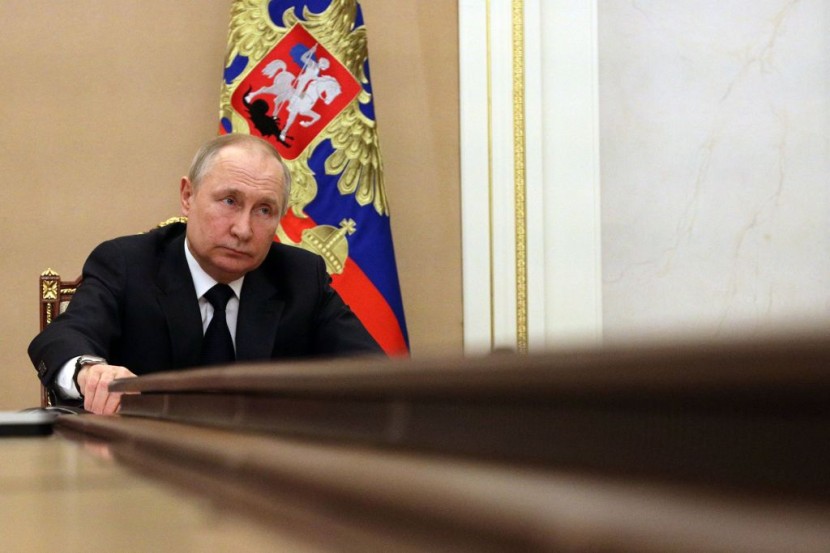
As the Russian-Ukraine war wages, many efforts have been launched to help Ukrainians get back on their feet.
Among those is a fundraiser for infrastructure repairs, launched by Ukraine's Vice Prime Minister Mykhailo Fedorov, with a humorous call for donations to send Russian President Vladimir Putin to Jupiter, the largest and the second-least dense planet in our solar system.
— Mykhailo Fedorov (@FedorovMykhailo) March 14, 2022
Fedorov, who also serves as the country's digital transformation minister, tweeted, "Everyone wants Putin to die. Until this happens, we give Ukrainians and the whole world a unique opportunity: to send Putin to Jupiter."
He encouraged the public to donate $2.99 to acquire a rocket that will send Russia's top leader to Jupiter. But the donations will be directed for the rehabilitation of areas devastated by the war, as per the Daily Mail report.
How Possible Is It To Send Putin to Jupiter?
According to NASA, no space agency is presently planning to send a mission with a crew to the giant planet because of its lack of a solid surface. A Newsweek report indicated that Jupiter also releases the deadliest radiation in the sun. Hence, there is a very high risk to put the Russian President on the planet.
The "Send Putin to Jupiter" petition, run by Fedorov's Ministry of Digital Transformation, has a $100 million fundraising goal. It has raised just over $2 million at the time of writing.
Fedorov twitted the link to Tesla billionaire Elon Musk in response to him challenging Putin to 'single combat,' writing: "We can send him to Jupiter, just in case." The post was flooded with responses from social media users, with one asking: "And what has Jupiter done to anyone to deserve this exactly?"
Another user commented support to the idea: "We could sell the yacht of oligarchs and use the money to build them a rocket."
Russia's invasion of Ukraine began on Feb. 24, and infrastructure and civilian structures have already been severely damaged. Hundreds of people have also died, reports say.
Read Also: US Army Fasttrack Development of Light Battle Tanks Due to Increased Threats From China, Russia
The Impact of Russian Invasion on Ukraine
According to the United Nations Office for the Coordination of Humanitarian Affairs (OCHA), the country's water infrastructure has been badly damaged, with restoration attempts delayed by continuing shelling.
The Russian forces' attack on Ukraine resulted in the displacement of around 4.4 million people. Among those who have survived are a substantial number of disabled or extremely ill children, some of whom have been moved for continued critical care shortly after arriving in Poland.
Humanity First (HF) sent a first responder team from Germany to the Polish-Ukrainian border on Feb. 27. Since then, they have provided medical and food assistance to Ukrainian refugees with volunteers on rotation. HF is collaborating with UN agencies on the ground, such as WHO, WFP, and OCHA.
Other HF branches across Europe have supported with resources, funds, and volunteers. Medical volunteers with experience of working in emergencies from North America and Europe are currently on standby to assist.
Ukrainian refugees have also crossed into Moldova, Hungary, Slovakia, Russia, and Romania. HF is continuing to assess needs in these countries.
Related Article : Zelensky Stays Optimistic on Peace Talks As Russian Forces Try To Destroy Ukraine Defenses
© 2025 HNGN, All rights reserved. Do not reproduce without permission.








